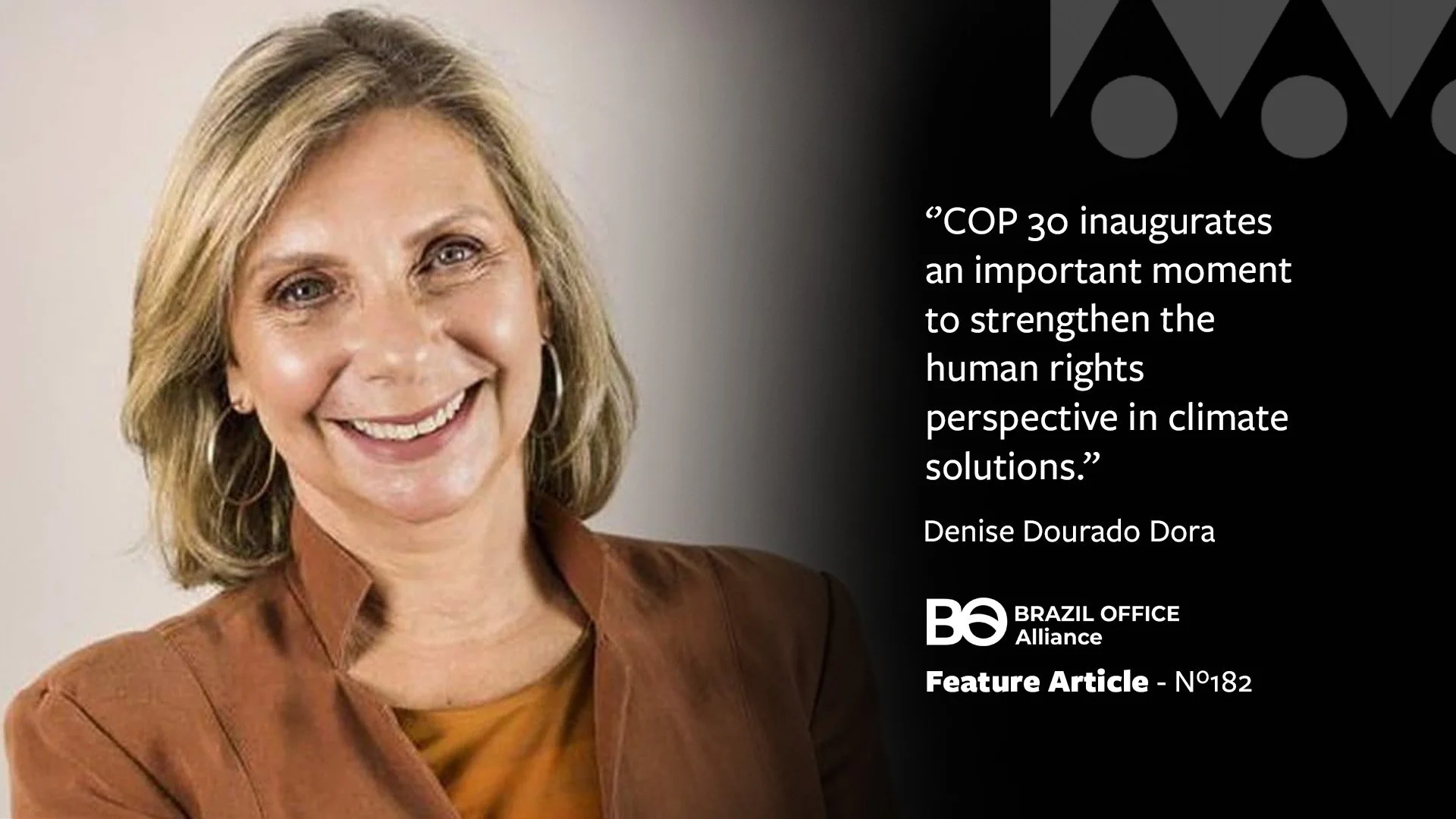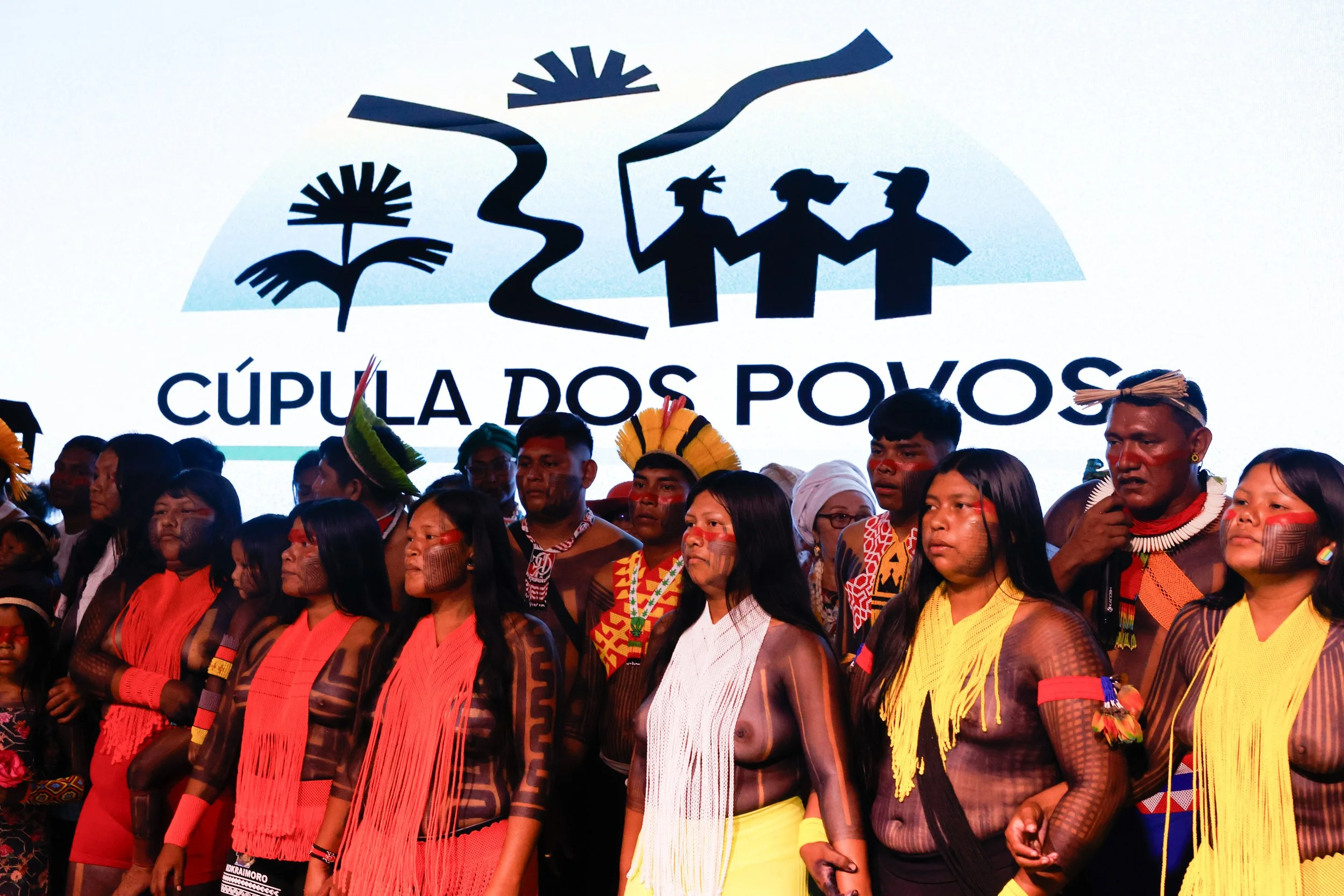If Not Now, When? Human Rights and Climate
By Denise Dourado Dora*
COP 30 inaugurates an important moment to strengthen the human rights perspective in climate solutions. Celebrating ten years of the Paris Agreement – an international treaty that establishes commitments from states to protect the environment and responsibilities regarding climate change – the Conference, taking place in Belém, has an enormous challenge ahead.
Science has already demonstrated that the increase in global temperature is interfering with all ecosystems. Climate emergencies – floods, droughts, hurricanes – have shown their impact on people, especially on more vulnerable groups, such as women and girls, who are more affected by climate emergencies and disasters, as studies show; indigenous peoples and traditional communities, who suffer from changes in their habitat and ways of life; and marginalized populations, where the intersection of racism in all manifestations of climate change has become increasingly visible.
Considering people in the climate debate, in connection with other threatened species, brings central ethical issues to the climate agenda: can we confront climate change that threatens the planet and all its living manifestations without thinking about modes of energy production and with the extraction of oil and minerals? Can we confront the impacts of climate change without considering the inequalities of the world? Can we think about containing global warming without addressing modes of food production, extensive agriculture, and deforestation? Can we imagine a new world since this one is on the verge of collapse?
The consistent action of civil society organizations and social movements on the climate agenda shows that the only way for us to survive is to rethink our ways of life and intense consumption, stop extracting oil and coal, stop releasing greenhouse gases responsible for global warming into the atmosphere, and incorporate human rights protection mechanisms into climate solutions. However, only now, with Brazil's presidency of COP 30, has a mandate been established for Special Envoys on Human Rights, Racial Equity, Women, and Indigenous Peoples and thematic days on justice and human rights have been created during COP 30, which expands opportunities for debates, alliances, and concrete proposals.
We also have two new developments: the recent advisory opinions from the Inter-American Commission on Human Rights (IACHR) and the International Court of Justice (ICJ) in 2025. These opinions, resulting from consultations on the responsibilities of States to protect human rights in the context of environmental impacts and climate change, reinforce the concept of climate justice in national and international agendas. They also encourage the debate on the incorporation of all human rights treaties into the perspective of environmental protection in public policies, adaptation plans, and mitigation actions, as well as being an incentive to the use of human rights protection mechanisms in the UN system and regional systems in situations of human rights violations caused by the action or omission of States in climate policies. The use of these mechanisms, such as the Inter-American Commission on Human Rights, or the committee on the rights of children, or the rights of women, should also be incorporated into the climate agenda, considering the effects that government inaction has produced on people's lives.
Elisa Morgera, the UN Special Rapporteur on climate and human rights, has affirmed the obligations of States to guarantee rights and act to prevent the collapse of the planet and humanity and will be at COP 30 participating in this debate on the connection between science, which unequivocally demonstrates the alteration of the planet's temperature and its causes; politics, with its leaders treating the effects of this temperature increase with varying degrees of seriousness; and the field of rights, which now considers the impact on people and their prospects for survival.
A call for a Global Climate and Human Rights Commitment – the Sumaúma Pledge 2025 – will also be launched at COP 30, where States, companies, universities, and civil society can commit to concrete goals for the protection of human rights in the context of climate change. It is also expected that the COP 30 agreements will include mechanisms for a just energy transition with principles of respect for fundamental rights and non-discrimination, as well as a significant increase in concrete governmental actions to adapt to the new impacts of climate change.
Addressing climate is not meteorology: it is an ethical challenge to rethink the world and reinvent the way we relate to each other, to other species, and to nature.
*Denise Dourado Dora is the Special Envoy of the COP30 Presidency for Human Rights and Just Transition


